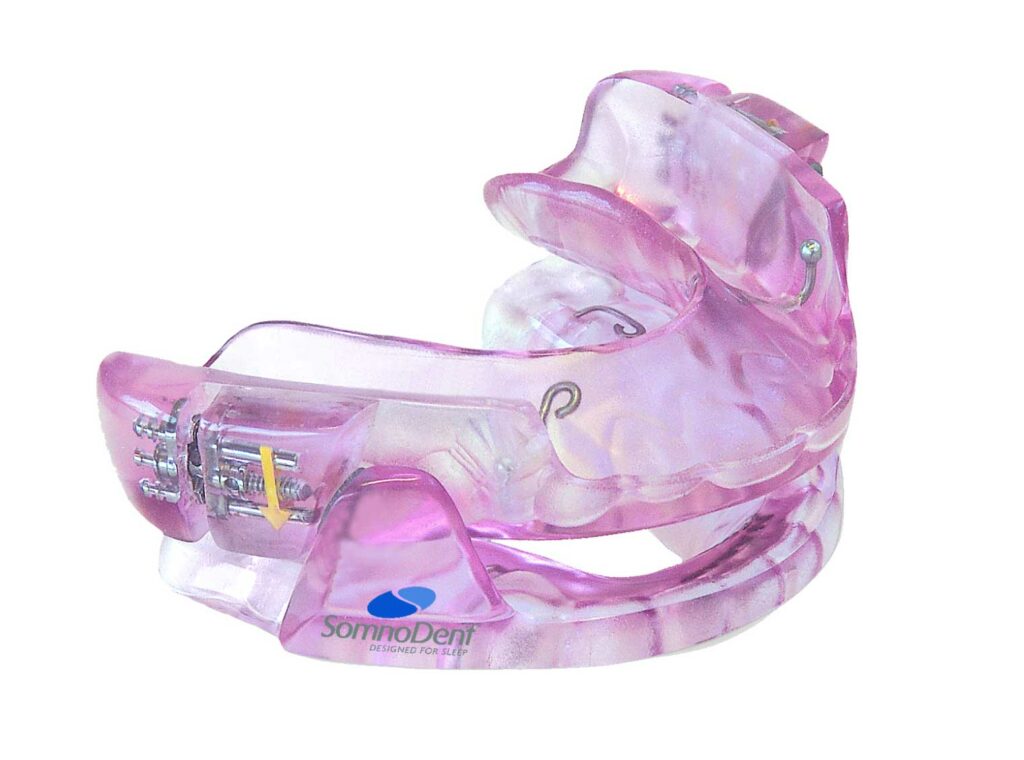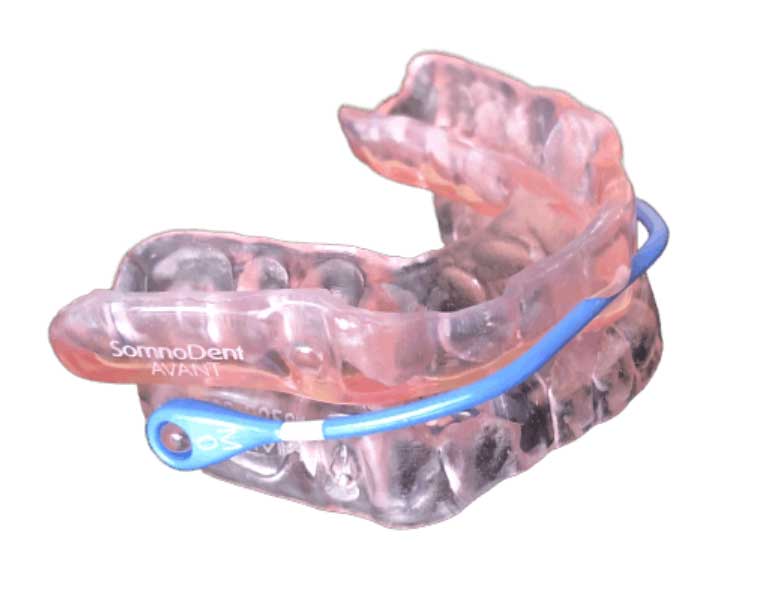Sleep Medicine and Treatment of Snoring
Snoring is a mild sleeping disorder which can be more stressful for the partners than the patients themselves. Snoring is no danger to the health but can be a first sign of a potentially harmful sleeping disorder.
There are many different forms of serious breathing disorders while sleeping. Dental medicine can provide assistance with obstructive sleep apnea. 6% of the adult population suffers from this sleeping disorder which is one of the most common ones.
Obstructive Sleep Apnea
Obstructive sleep apnea is associated with an obstruction of the upper airway. While sleeping, the muscles tone relaxes and the tongue drops back what plugs the already constricted airway. Having tried to take a breath unavailingly, patients wake up whereby sleep can be interrupted many times a night. The consequences are sleepiness during the day together with decreased performance and increased accident risk due to microsleep. Apart from that, obstructive sleep apnea may cause other serious health problems.
The obstruction of the pharynx by the tongue dropping back is one of the main causes of obstructive sleep apnea. The classic treatment is the so called cPAP-therapy (continuous positive airway pressure) in which a face mask is attached to a respirator while sleeping. However, this form of therapy is not tolerated by all patients. For mild to medium severe cases, dental medicine offers protrusion appliances. These are removable appliances which are worn in the mouth at night. By that, the lower jaw advances by 5-8 mm which in turn advances the tongue. The advancement leads to an enlargement of the pharynx by which an obstruction of the airways is prevented.



In each case, patients suffering from snoring or obstructive sleep apnea should consult an expert in the field of sleep medicine, mostly lung doctors (pneumologists) or ear, nose and throat doctors. They can determine whether a sleep disorder exists, for which sometimes a home monitoring is sufficient. In some cases, one night is spent in the sleep laboratory for diagnosis. They should also find out if a dental protrusion appliance would have a positive effect on the sleeping disorder. Only after that the consultation of a dentist trained in sleep medicine would make sense. Dr. Madsen is educated and trained in sleep medicine and he is a member of the German Association of Dental Sleep Medicine (DGZS).
Protrusion Appliances
There are various types of protrusion appliances, but their principle of action is always the same.
In Germany, the IST-appliance after Hinz and the TAP-splint after Thornton are the most common ones. Both of these appliances are offered in my offices. Usually, you get used to wearing the appliances in no time. In most cases, the snoring can be reduced as far as it allows partners to share a room at night. Good results can be achieved with mild cases, while medium-severe cases can be treated with satisfactory results. If patients absolutely cannot come to terms with the cPAP mask at night, a dental protrusion appliance is better than no treatment, even in severe cases.
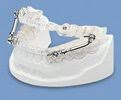
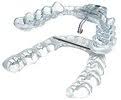
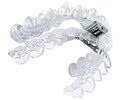
One of the disadvantages of protrusion appliances is that they are changing the bite slowly and can cause disturbance of the bite when used for many years. For this reason, they are not suitable if many teeth are missing or the dentition is damaged by periodontitis.
The cost for a protrusion appliance is about 1000€. The coverage by third parties, especially public health insurances, must be verified on an individual basis.
Links:
Deutsche Gesellschaft zahnärztliche Schlafmedizin
Deutsche Gesellschaft für Schlafforschung und Schlafmedizin
Informationen zur TAP-Schiene vom Vertreiber
More Online Services:
www.schlaf-messe.de
www.schlafapnoe-online.de
www.schlafstoerungen-online.de
www.schnarchen-online.de
www.schlafportaldeutschland.de

